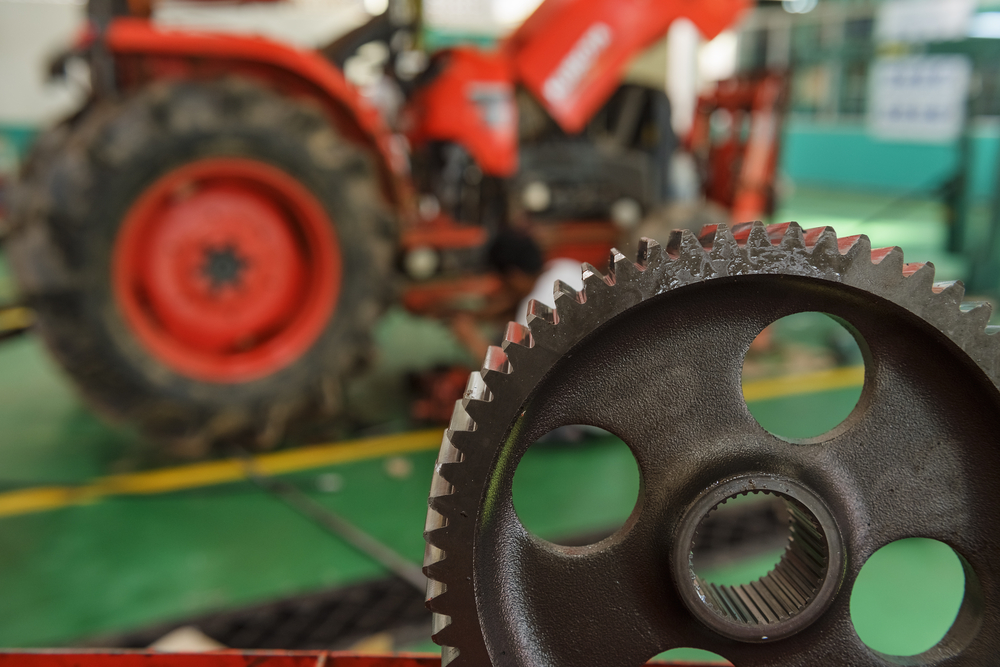Maximizing Farm Efficiency: The Role of Equipment Repair in Productivity
Efficient farm management is essential for profitability and sustainability, especially in areas like Sheridan Lake, CO, where agriculture is the backbone of the local economy. However, maintaining farm efficiency is not just about increasing yields; it also involves optimizing resources and minimizing downtime, especially when it comes to equipment. Farm equipment, from tractors and plows to irrigation systems, forms the core of daily operations. The challenge? Keeping these machines in peak condition to avoid disruptions. Here, we’ll explore the role of equipment repair in enhancing farm efficiency and the best practices farmers can adopt to keep productivity high.
Understanding Farm Efficiency
Farm efficiency refers to the optimized use of resources like labor, machinery, fuel, and time to achieve the highest possible yield and output quality. Efficient farms make the most of every dollar invested, maximizing outputs with minimal inputs. It’s especially vital for rural communities like Sheridan Lake, CO, where resources are precious, and farming is integral to the local economy.
Key factors that influence farm efficiency include:
- Machinery Performance: Reliable and well-maintained equipment reduces operational downtime.
- Labor Optimization: Streamlined processes and fewer manual tasks lead to better time management.
- Resource Management: Efficient fuel and water usage conserve resources and cut costs.
The key to all these factors? Ensuring that the farm’s equipment runs smoothly through regular maintenance and repair.
The Importance of Equipment Repair in Farming Operations
Minimizing Downtime
One of the biggest threats to farm efficiency is downtime. When equipment breaks down, it halts production, causing cascading delays and sometimes resulting in crop damage, spoilage, or missed market opportunities. In a place like Sheridan Lake, CO, where farming seasons are often dictated by climate and crop types, every moment counts.
Routine equipment repair ensures machinery operates smoothly, reducing the risk of unexpected breakdowns. Preventative maintenance, such as replacing worn-out parts before they fail, is a cost-effective way to keep equipment functional and avoid interruptions.
Extending Equipment Lifespan
Agricultural machinery is a significant investment, with tractors, harvesters, and other large equipment often costing tens of thousands of dollars. Regular repair and maintenance extend the life of these investments, making them more economical over time. The longer the equipment lasts, the better the return on investment.
For example, a well-maintained tractor can last decades with regular servicing, while a neglected one may require a costly replacement in half the time. By investing in timely repairs, farmers in Sheridan Lake, CO, and other agricultural regions maximize the life of their machinery, maintaining farm efficiency with minimal replacement costs.
Enhancing Productivity and Output Quality
Efficiently running equipment directly influences productivity. A well-tuned machine performs optimally, allowing farmers to cover more ground and complete tasks faster. Consider a harvester with a sharp, properly maintained blade. It will be able to harvest crops quickly and cleanly, reducing waste and ensuring that more produce is brought to market in better condition.
Similarly, equipment used in planting or tilling will produce uniform and precise results when maintained correctly, contributing to higher crop yields and better product quality. In Sheridan Lake, CO, this can mean the difference between a profitable season and a poor one, as the quality of the yield directly affects market prices.
Improving Farm Safety
Faulty machinery poses a safety risk. Worn-out parts, damaged hydraulics, or failing engines can lead to accidents on the farm, endangering workers. Regular equipment repair ensures that machinery meets safety standards, creating a safer work environment.
For instance, an unchecked oil leak or frayed wiring on a tractor could lead to fires, putting lives at risk. Timely repairs help prevent such hazards, protecting both personnel and property. By prioritizing safety, farmers can maintain productivity without risking the well-being of their workers.
Essential Equipment Repair Practices for Maximizing Farm Efficiency
1. Implementing a Routine Maintenance Schedule
A proactive approach to maintenance is vital for preventing breakdowns. A routine maintenance schedule involves regularly checking and servicing machinery parts that are prone to wear and tear, such as filters, belts, hoses, and tires. By following a maintenance calendar, farmers can ensure all equipment receives necessary attention at appropriate intervals, minimizing the chances of unexpected failures.
Many farmers in Sheridan Lake, CO, have found that setting aside time after each planting or harvesting season for a thorough equipment review allows them to catch potential issues early, helping prepare for the next cycle without stress.
2. Using High-Quality Replacement Parts
Not all replacement parts are created equal. Low-quality parts may save money upfront but tend to wear out faster and are more likely to fail under the demanding conditions of farm work. Investing in high-quality, durable parts is crucial to ensuring longevity and reducing frequent repairs.
For instance, choosing top-tier tires or hydraulic systems may be more expensive initially but can handle rough terrain and heavy loads better, reducing the likelihood of repeated replacements. In places like Sheridan Lake, CO, where soil and terrain can be challenging, using quality parts makes a noticeable difference in maintaining farm efficiency.
3. Partnering with Local Equipment Repair Services
For complex repairs and specialized equipment servicing, partnering with local repair experts is invaluable. Local professionals understand the specific demands of the region, making them well-suited to advise on and handle repairs effectively. In Sheridan Lake, CO, many farmers rely on nearby repair services for tasks like heavy equipment diagnostics, welding, and hydraulic repairs, ensuring they have a trusted resource to turn to when equipment issues arise.
By establishing a relationship with local repair services, farmers not only save time but can also gain insights into best practices for maintaining their unique equipment. This partnership leads to faster response times and often results in better, longer-lasting repairs.
4. Training Workers on Basic Maintenance Skills
While professional repairs are essential for complex issues, training workers to handle basic maintenance tasks is a great way to improve efficiency. Simple activities like checking fluid levels, tightening bolts, and lubricating moving parts can prevent major issues and reduce the frequency of professional repairs needed.
Farm workers trained to spot early warning signs, like unusual noises or minor leaks, can report issues before they escalate. This proactive approach is particularly useful in busy farming periods in Sheridan Lake, CO, when waiting for repair services may lead to missed deadlines.
5. Leveraging Technology for Predictive Maintenance
Modern farms increasingly rely on technology to streamline operations, and equipment maintenance is no exception. Predictive maintenance, which uses sensors and data analytics to monitor machinery health, allows farmers to predict when a piece of equipment may need repair before it fails. By analyzing data on factors like vibration, temperature, and load, predictive systems can identify issues early.This technology can be a game-changer in enhancing farm efficiency, especially in time-sensitive agricultural operations. Though an investment, predictive maintenance reduces long-term costs by preventing breakdowns and extending equipment lifespan.
Challenges in Maintaining Equipment Efficiency in Sheridan Lake, CO
Limited Access to Parts and Services
In rural areas like Sheridan Lake, CO, access to parts and specialized repair services can be limited. Farmers may need to travel long distances to source quality parts or hire experienced technicians, leading to delays. Building relationships with reliable suppliers or online parts stores can help mitigate this challenge, ensuring quick access to necessary components.
High Cost of Equipment Repair
Farm machinery repairs can be costly, and in small farming communities, these expenses may strain budgets. Implementing a regular maintenance schedule and using durable replacement parts can help manage costs by reducing the need for frequent repairs. Additionally, prioritizing essential repairs and using predictive technology can prevent small issues from becoming costly overhauls.
Weather and Seasonal Impacts
The farming seasons in Sheridan Lake, CO, are heavily influenced by weather patterns, affecting when and how machinery is used. Harsh conditions can accelerate wear on equipment, making regular maintenance even more critical. Scheduling repairs during off-seasons or between cycles can help minimize downtime and protect equipment from harsh weather.
Investing in Equipment Repair to Boost Farm Efficiency
Maximizing farm efficiency requires a multifaceted approach, with equipment repair and maintenance playing a pivotal role. In farming communities like Sheridan Lake, CO, where the economy heavily depends on agriculture, ensuring machinery is reliable and safe directly contributes to productivity and profitability.
By implementing a routine maintenance schedule, using high-quality parts, partnering with local repair services, training workers on maintenance basics, and leveraging predictive technology, farmers can keep their equipment in top shape. Each of these strategies helps minimize downtime, extend equipment lifespan, and ultimately improve farm efficiency.
In the end, investing in regular equipment repair and maintenance is not just about keeping machines running; it’s about safeguarding the farm’s long-term viability, enabling farmers to make the most of each season, and ensuring a prosperous future for agriculture in Sheridan Lake, CO.





